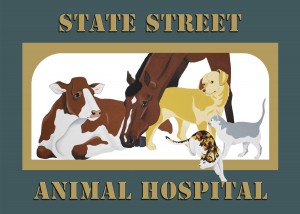Should our dogs be taking vitamins as they age?
Should our dogs be taking vitamins as they age? Healthy pets who are eating pre-made food, meaning dry kibble or wet food, with a label on the bag that says the food meets AAFCO standards, do not require vitamins as their diets are pre-balanced with the essential amino acids and vitamins. However, as pets do age, they may benefit from other supportive products including joint supplements and skin supplements. Pets with underlying health issues such as allergies may benefit from other dietary supplements as well.
How do I know what’s a good food and what isn’t?
Great question! There are several considerations for picking out an appropriate food for your pet. Let’s break it down into pieces:
Ingredient quality – What are the first three ingredients? Do they include by-products?
AAFCO statement – AAFCO, the Association of American Feed Control Officials, puts a label or statement on foods that have passed their testing to be considered balanced for essential nutrients.
Does the food meet your pet’s health needs? For example, there are diets available that are specially formulated for pets with diseases such as urinary, kidney, or thyroid disease. Additionally, some foods contain additional supplements that may decrease signs associated with arthritis or skin disease.
What is your pet’s lifestyle? Some diets are specially formulated to be higher in carbohydrate, fat, and protein levels to supplement increased activity levels. Dogs who are candidates for these diets include working dogs and sled dogs. The average dog who is active for 1-2 hours per day does not usually require the extra calories.
We put our dog Abbey on a grain and chicken free diet, which seemed to help with her allergies. Now I am seeing that grain free diets may possibly be leading to heart disease. Now I’m not sure what we should feed her????
Recent investigations have found a possible correlation between grain-free diets and heart disease in dogs. Currently, there is little evidence that grain actually causes allergy symptoms. Often by switching dogs to a grain-free diet, the overall ingredient quality of the diet is improved and this contributes to better health. As new research is released, we are committed to keeping clients updated. In the meantime, we don’t generally recommend grain free diets. For pets who are stable on a grain free diet, we recommend supplementing taurine (the amino acid that contributes to heart disease), available in pill supplements, and more frequent wellness checks (for example every 6 months) with chest x-rays when possible to detect heart disease as early as possible.













Social